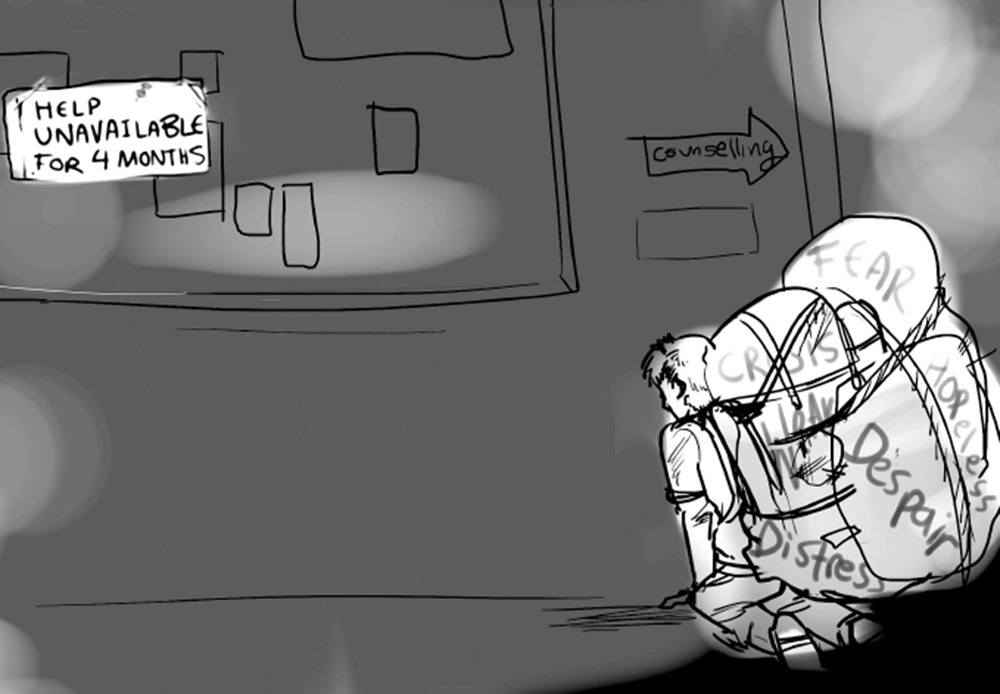Matt Dionne | Sports and Health Editor
Featured illustration: Students who are not taking summer classes must seek counselling services other than those provided by York. | Jasmine Wiradharma
University is a time of self-discovery, often looked back on with nostalgia and fondness. However, getting through it can be extremely stressful and difficult.
An unpublished study by Cornell psychologist Janis Whitlock found 7.5 per cent of students with no history of mental illness developed symptoms while at university. Five per cent of students who did have a previous history of mental illness saw their symptoms increase.
Fortunately, many schools offer counselling services for students suffering from mental illness and depression, including York.
“York University offers personal counselling to registered students who are enrolled in courses in order to support them with short-term counselling.
One of the primary purposes of this counselling is to assist students at a time when they are struggling with challenges that may prevent them from successfully completing their courses,” says York Media Relations Deputy Spokesperson Janice Walls.
“Due to the nature of personal counselling, students’ needs are evaluated on a case-by-case basis. Most students require short term counselling only but if they need longer-term counselling, York will provide them with information on community resources,” says Walls.
However, York does not offer counselling services to students who are not enrolled in classes. This means students who do not take summer courses are not eligible to receive counselling during the summer months.
“If a student is not enrolled in a course, they are offered a consultation appointment during which they may receive counselling or may be provided with information on places in the community where counselling is offered. However, if a student has already started counselling or booked an intake appointment while enrolled in a course, the counselling will continue on a short-term basis even after their classes end. And of course, services are available to all students in a crisis,” says Walls.
According to the Canadian Mental Health Association, or CMHA, 20 per cent of Canadians have experienced or will experience some form of mental illness.
The cause of mental illness is multi-faceted. Personality, genetics, biology and environment are all contributing factors.
Mental illness is often looked at through a stigmatic lens, yet it is a growing problem for teenagers and young adults.
In 2010, Ryerson University saw a 200 per cent increase in students looking for assistance from their centre of student development and counselling during crisis situations. A 2011 survey of 1,600 University of Alberta students paints an even more alarming picture — roughly 51 per cent reported that within the past 12 months they’d felt things were “hopeless.” Over half felt “overwhelming anxiety,” and seven per cent admitted they had “seriously considered suicide.”
According to the CMHA, suicide accounts for 24 per cent of deaths of people between the ages of 15 and 24, and 16 per cent of deaths among those between the ages of 25 and 44. It is also the second-leading cause of death for Canadians between the ages of 15 and 24, and the ninth overall cause of death for all Canadians according to Stats Canada.
To find out more about the counselling services York offers, you can visit them in person at N110 in the Bennett Centre, call them at 416-736-5297 or visit their website at pcs.info.yorku.ca
If you are struggling with depression or suicidal thoughts, you can call the Ontario Post-Secondary Student Helpline at 1-866-925-5454, the Suicide Hotline at 1-800-784-2433 or 911.


